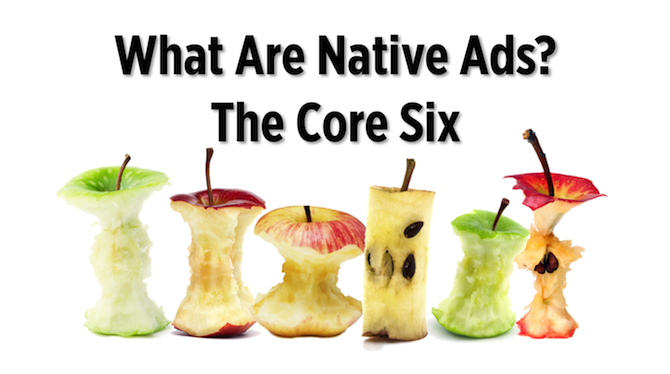As I already discussed in this earlier post, the industry at large is still struggling to come up with a concrete answer to the question: “What Are Native Ads?” Even the IAB (Interactive Advertising Bureau), has struggled in its attempts to come up with a standard definition.
Instead of a rigid definition, the IAB’s Native Advertising Playbook provides examples of what it calls “The 6 Core Types of Native Ad Units”–a list which includes several ad formats you may have never even considered:
- Paid Search Units
- Recommendation Widgets
- Promoted Listings
- In-Ad (With Native Elements) Units
- In-Feed Units
- Custom/“Can’t Be Contained”
What Are Native Ads? – Common Ad Unit Formats
1. Paid Search Units
This refers to paid-for premium placement of search engine results (looking at you, Google Ad Words). To be clear, this doesn’t refer to ALL ads that appear on a search engine, only those which present themselves in a format and layout similar to the organic search results.
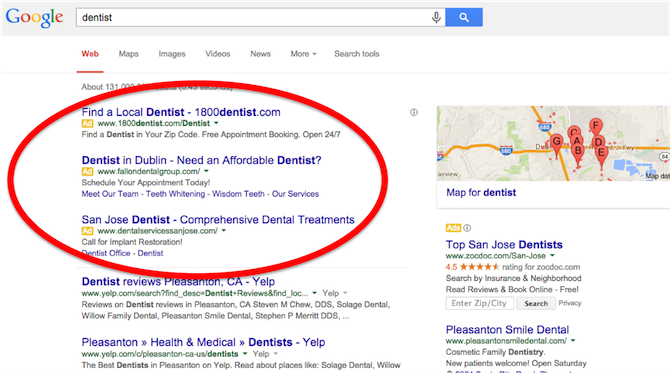
Paid-for premium placement of search results constitutes as native advertising
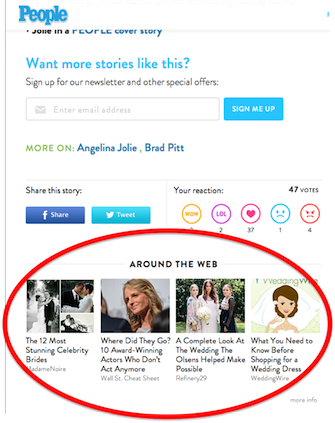
“Recommendations” linking to sponsored content or external sites are considered native ads
Typically appearing at the end of another piece of content, these widgets are usually presented with a pretext of “suggested reading” for the user–implying that they are somehow relevant to the consumer’s interests, based on the piece of content viewed. These widgets do not necessarily link to content with form or function reflecting the context where they appear.
3. Promoted Listings
When a publisher (usually an ecommerce site or agency) provides paid-for premium placement of certain vendors, products, etc. Not unlike brick and mortar retailers providing preferential placement for high-bidding brands.
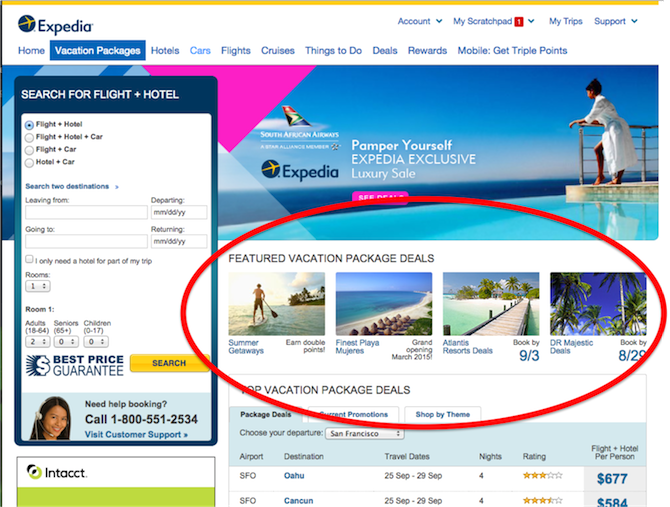
Paid-for premium placement on agency or ecommerce websites is considered native advertising by the IAB
4. In-Ad (With Native Element) Units
These ads appear, for all intents and purposes, just like standard display ads—but with one exception. Within the ad unit itself is content that holds specific contextual relevancy with the publisher.
For example, an ad used to promote Campbell’s Soup might contain a recipe—and this ad would be then considered native if it appeared on allrecipes.com.
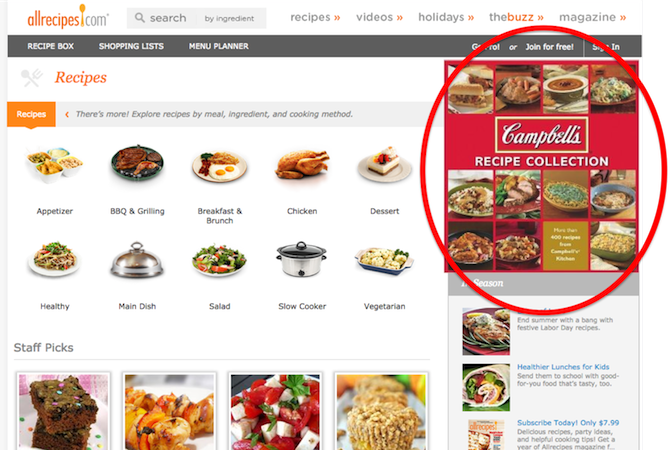
Ordinary display ads can be considered native ads if the ad itself contains contextually relevant content
5. In-Feed Units
When a person talks about “native ads,” odds are this is what they’re referring to. In-feed advertising, a broadly-defined concept in its own right, refers to any ad unit designed to exist within the publisher’s ordinary content well.
In other words, in-feed ad units can either link to obvious ads, like this:
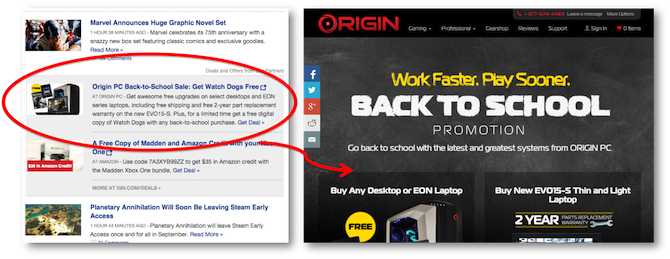
In-Feed native ads can either link to clear advertising content…
Or sponsored content designed to blend in seamlessly with the publisher:
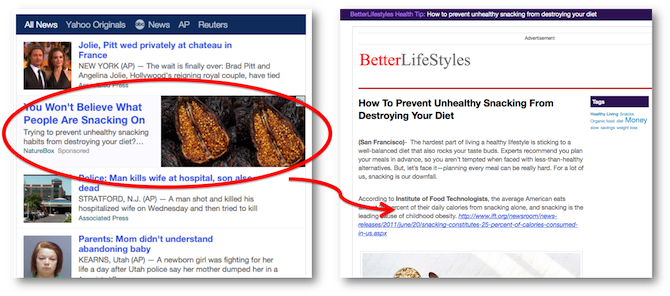
…Or content designed to blend seamlessly with the publisher.
In-feed sponsored content has created a controversy recently, with many considering it a threat to editorial integrity.
Related: John Oliver Declares War on Native Advertising
6. Custom/“Can’t Be Contained” Ad Units
To me, this category represents the IAB throwing up their hands in exhasperation and saying, “This is impossible.” Because native ad formats can be completely unique for specific publishers, it’s a fools errand to try to come up with a comprehensive definition.
“Can’t Be Contained” Units refer to anything that is obviously a native ad, but fails to fit into any of the other 5 pre-determined categories. My personal favorite example of this is the native advertising you find on Pandora—not the interstitial radio spots or the display ads in the margins, I mean Pandora’s Branded Radio Stations, which offer themed playlists used to promote a particular product (i.e. a sports product might advertise with a playlist of workout music).

Publishers like Pandora have native advertising formats so unique, they don’t fit any standard definition. (image courtesy of Pandora)

